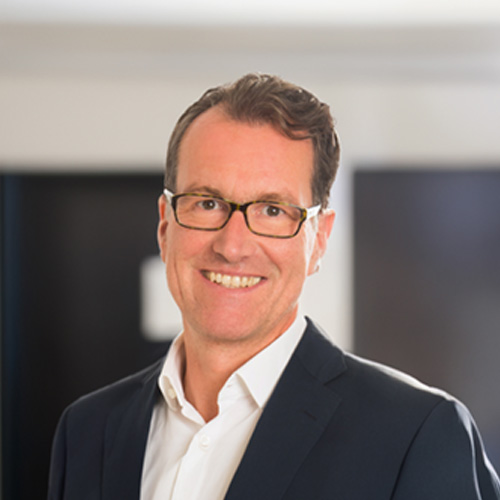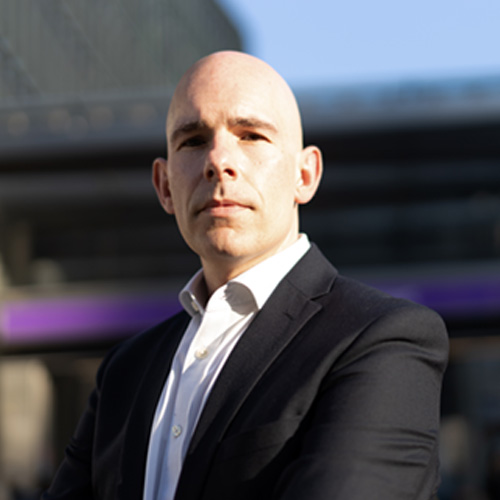Each new year brings a wealth of unexpected trends in the technology space and navigating them is challenging to say the least. Industry experts from across the region have given their opinions on some of the curveballs they’ve been thrown this year, as well as how they aim to manage what’s in store over the next 12 months in order to formulate the most effective technology strategy.
Rafaat Rahmani, President and Founder at Lifescience Dynamics, believes that each year arrives with new challenges and provides new opportunities for learning, development and growth. He says that the most valuable lessons in business are often taught when things do not run their predicted course. “We have learned more from the aspects of our annual planning that perhaps did not come to fruition.”
Rahmani continued: “This year, everyone in our industry has been influenced by our clients’ reduced spending, namely big pharma. Our plans for the year were shaped by the forecasted sales and estimated demand for our services. This estimate was based on the very strong, double-digit growth we had seen in the 2020-2022 period. The impact of this reduced pharma spending in 2023 has been felt across the consulting industry.
“In accordance with predictions based on the 2020-2023 performance, we also embarked on an aggressive hiring plan, with demand that did not materialise as expected. Numerous learning points will influence our business strategy moving forward, but the following are the most valuable lessons.
“Retention of core values and a focus on our founding principles is essential. We are a compassionate, human company. Consequently, we have not taken any short-term decisions, unlike many of our competitors, such as lay-offs and redundancies. We also made the conscious choice not to stop or delay any promotions or bonuses.”
The value of financially strong management should never be underestimated. This, Rahmani said, has allowed the company to weather any storms that arose. “By only investing in value-generating projects, we have remained in a strong financial position but helped with no burdens of debt.”
Rahmani went on to say that efficiency is generated by focusing on operational excellence. “Through leveraging technology, we create custom applications and software that automate repetitive tasks, thereby increasing accuracy and flexibility. We have invested in learning and development, while encouraging teamwork and collaboration enabling us to limit duplication and minimise overlaps.
“Moving into 2024, the application of these lessons will influence business strategy with the greatest takeaway being that adaptability can only be learned through experience. Navigating the unexpected is what allows us to avoid being complacent. This constant learning and openness to re-invention and embracing new technologies results in an approach to business that is future looking. These key tenets mean we stay ahead of the curve.”
Aaron Goldman, CMO, Mediaocean

The key lesson we learnt from 2023 is that there is no ‘new normal’. We entered this year thinking that COVID was in our rear-view mirror and the new habits formed during the transformational experience of the pandemic were firmly ingrained – things like online grocery shopping, streaming TV and hybrid working.
However, with the impact of macro-factors, be that of wars, cost-of-living crises, regulatory issues, social media upheaval or the emergence of Generative AI – the only constant we have experienced is change. We need to get comfortable with the fact that there is no ‘new normal’ only, as Rishad Tobaccowala calls it, the ‘new strange’.
When thinking about business strategy heading into 2024, we need to be agile in our approach, listen to our customers and embrace change in all its forms. In the ad tech sector, we’re entering an era of ‘creative renaissance’ with incremental performance gains in marketing will come from message optimisation more so than media placement. To that end, we need to open our arms wide to innovations such as AI – but not in the way we’ve been programmed to think. The opportunity is so much more than using tools like Chat GPT or DALL·E to create copy and images. AI can help surface intelligence from advertising and feed insights back to marketing teams. One example is auto-detecting and classifying all elements of an ad using AI and, in real-time, deciphering which combination of variables are driving the most valuable engagement with consumers.
As we step into 2024, the takeaway is clear: businesses should embrace the ‘new strange’ by focusing on adaptability, innovation and a keen understanding of market dynamics. This approach ensures not just survival, but positions businesses to thrive amidst the perpetual waves of change.
Dirk Martin, CEO and Founder of Serviceware SE

As this year has shown, it’s crucial we continue to keep an eye on the broader strategic components of our operations. Economic pressures and market volatility have underscored the need for strategic long-term planning. AI and Digital Transformation will significantly shape our business strategy moving forward into 2024.
Firstly, we’ve witnessed an accelerated shift towards servitisation, a trend we believe will continue to surge as we move into 2024 and beyond. Companies are no longer just selling products; they are providing comprehensive solutions that include services. This shift is driving us to refine our software solutions to enable businesses to transition smoothly into service-led models. We aim to empower businesses to manage their services more efficiently, ensuring they deliver value to their customers, thus improving their competitive edge.
Secondly, the Digital Transformation journey has emphasised the paramount importance of agility and adaptability within a business. The digitalisation of services has accelerated and the companies that can quickly adapt to these changes have been the most successful. To this end, we are committed to staying on the cutting edge of technology and continually innovating our solutions to help our clients navigate their Digital Transformation journeys.
Most importantly, as AI continues to evolve, we’ve recognised its potential in automating and optimising service management. By 2024, the economic pressures will intensify. CIOs will face the challenge of leading AI transformation in their organisations, acting as a guide for the enterprise, adapting business processes, ensuring AI-readiness of data and protecting the organisation against new cybersecurity threats. These efforts will demand substantial resources and budgets. Serviceware is poised to support these challenges through IT service management, business process transformation and comprehensive IT finance management. By integrating AI capabilities into our software, we can provide our clients with predictive insights that allow them to proactively manage their services and anticipate their customers’ needs. We envision AI becoming an integral part of our solutions, driving efficiency, reducing costs and improving customer satisfaction.
Finally, our role as a strategic consulting partner has highlighted the need for a holistic approach to IT Financial Management (ITFM) and Technology Business Management (TBM). Our goal for 2024 is to help our clients not only track and control their IT costs, but also understand the business value of their IT investments, enabling them to make informed strategic decisions. We are excited about the future and look forward to empowering our clients to thrive in the service economy.
Nick Drouet, CTO Kyndryl UK&I, Distinguished Engineer

As we close the page on 2023 and set our sights on next year, I think the technology industry has finally realised that modernisation is now the name of the game. Over the past 60 years, the technology industry has been very successful at rolling out new infrastructure and systems, however, we haven’t been as effective at cleaning up after ourselves. The ‘layer cake’ of IT has thus grown and grown over the years, leaving us with a mess of technical debt in the form of complex and expensive architecture which is difficult to change. Evidently, to clean up the technical debt lying in our wake, there needs to be a marked change in approach and in 2024; technology vendors must focus on delivering new and improved services to help customers become more agile.
Encouragingly, we’re still seeing a strong appetite from enterprise customers to become more cloud native at scale. However, unlike cloud-only approaches of years gone by, it’s clear that a measured, hybrid cloud strategy will deliver greater success – according to a recent survey by Kyndryl, 99% of businesses are now taking this approach. A perfect example of where this is needed is the financial services industry, where banking environments run on decades-old mainframes. While these are tricky to maintain and even more tricky to swap out, they still deliver tremendous business value, offering enhanced security and deep veins of useful data which can be leveraged using AI-powered solutions. The value therefore lies in modernising these mainframes into a hybrid environment and next year it will be crucial for enterprises to have an IT infrastructure services partner with the experience and know-how to guide them through this tricky endeavour.
Another key consideration is the sustainability aspect of modernisation. In 2023, we’ve rightly seen more pressure build on businesses to take responsibility for their carbon emissions. Now, technology vendors must not only be aware of the carbon footprint of building new applications, but also how they can help customers identify and rectify the environmental damage being caused by their legacy technology. Often, the most positive impact can be made in places which are the most difficult to optimise, such as bloated application code, which presents a significant test for teams clearing technical debt. As such, 2024’s most sustainable modernisation projects will be those that put a great deal of effort and thinking into tackling these areas.
Click below to share this article

